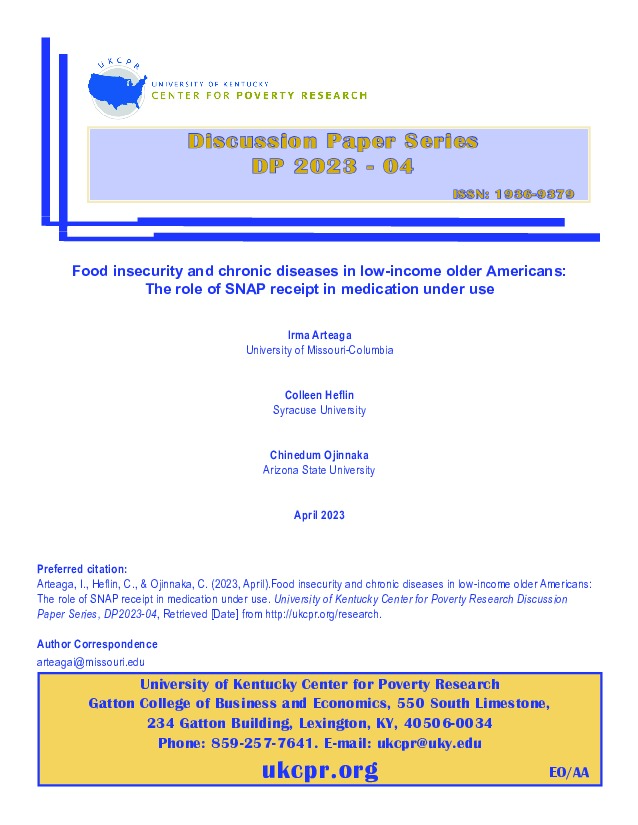We are interested in exploring how SNAP participation is related to the health of older adults. We used Supplemental Nutritional Assistance Program (SNAP) administrative records, Medicaid medical claims records for diabetes, and hypertension, and Medicaid pharmacy claims records related to treatment plans for these disease conditions for the period 2006 to 2014 for older adults aged 60 and older in one Midwestern State. First, using only the SNAP administrative records, we investigated the characteristics of older adult participants in SNAP who experience administrative churn, a short-term disruption in benefits lasting up to four months and often occurring when participants are required to recertify their eligibility for benefits. Second, using the SNAP records linked to the Medicaid records, we documented rates of hypertension or diabetes diagnoses and rates of medication adherence to antihypertensives and antidiabetics for SNAP participants overall as well as by age group and race/ethnicity. Third, we examined the relationship between concurrent SNAP and Medicaid enrollment, pattern of SNAP participation, and medication non-adherence among low-income Medicaid-insured older adults living with hypertension. Finally, we estimated the causal effects of small changes in SNAP benefit size on chronic disease medical claims, Emergency Room (ER) claims, and medication adherence.
Research
SeniorsPDF Thumbnail
